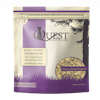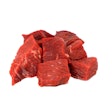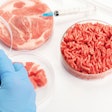
In most pet products, eggs are underutilized due to their limited availability and generally high cost. More recently, eggs have come under the spotlight due to avian flu outbreaks, even as consumers continue to view them as an essential part of their diets. There is a growing body of science that puts eggs as the premium ingredient in pet products and, potentially, supplements.
Eggs are especially beneficial for pets with higher protein needs, such as growing puppies and kittens, pregnant and lactating animals, performance or working dogs, and animals recovering from illness. Eggs provide high-quality protein that supports muscle growth, healthy skin and coat, immune function, enzyme activity, and tissue repair.
The gold standard of proteins
Eggs are widely recognized as one of the most complete and bioavailable sources of protein. They contain essential amino acids in precise ratios required for optimal pet health. In fact, egg as a standalone ingredient exceeds the American Association of Feed Control Officials’ (AAFCO) nutritional guidelines for amino acid requirements.
The composition is considered the ideal protein or the “gold standard” which all proteins are compared to. Unlike some plant-based proteins, which can lack certain amino acids or have lower digestibility, egg protein scores highly in multiple nutritional measures.
Eggs and milk products are generally higher in protein quality compared to other animal protein sources. Animal protein sources are higher in protein quality than most plant sources, with potato protein being the exception (See Table 1). The quality of various sources of protein depends on how it is processed, refined, stored or cooked, and can vary widely amongst different vendors or processing plants.
Egg protein is considered one of the highest quality dietary proteins. It has a perfect chemical score of 100, meaning its levels of essential amino acids match those of an ideal protein source. Its biological value — which measures how efficiently the body uses protein to build tissue — is 94. Eggs also have the highest protein efficiency ratio (PER) of any food protein, with a PER of 3.8, indicating excellent support for growth and maintenance.
Whole egg has an amino acid score (AAS) of 1.21—exceeding the amino acid requirements for humans—based on the PDCAAS (Protein Digestibility Corrected Amino Acid Score) system. This scale ranges from 0 to 1 (or 0 to 100), with a score of 1 indicating a complete protein. Foods like whole egg, whey protein, casein and soy protein concentrate all score 1, meaning they provide all essential amino acids in adequate amounts.
Another protein quality method, DIAAS (digestible indispensable amino acid score) was first introduced in 2013 by the Food and Agriculture Organization (FAO) to replace PDCAAS. The rankings shown in Table 1 align similarly to data reported for humans, but these DIAAS scores can vary depending upon the model used (rats vs. swine vs. dogs), the life stage (adult, early and late growth), the regulatory body (NRC, AAFCO, FEDIAF) and vendor/processing conditions.
More than just protein
In addition to being a high-quality protein source, eggs are packed with essential nutrients. They naturally contain a variety of important vitamins and minerals, including vitamins A and D, B vitamins, selenium, choline and antioxidants like lutein and zeaxanthin. These nutrients are present in their natural, highly bioavailable forms, which enhances their utility in pet nutrition. This is particularly advantageous when formulating complete and balanced foods that meet AAFCO nutrient profiles.
Additionally, eggshells contain calcium, phosphorus, magnesium, potassium, chloride, iron, copper, zinc, manganese, selenium and iodine. Eggshells contain around 40% elemental calcium. Large amounts of eggshells are discarded as waste with a negative environmental impact. In contrast, limestone reserves are a non-renewable natural calcium source.
Eggshell calcium is a superior source of bioavailable calcium compared to other calcium sources, especially inorganic calcium carbonate. Eggshell membrane contains several biomolecules for maintaining joint health. There is a synergistic effect between these key biomolecules (collagen I, V and X), chondroitin sulfate, glucosamine, hyaluronic acid, keratan sulfate), sulfur-rich amino acids (methionine, cysteine), lysozyme and important proteins and peptides (elastin, desmosine, isodesmosine, ovotransferrin, etc.) that enables the relatively small amounts of each molecule to have efficacious anti-arthritic benefits. Multiple dog trials have demonstrated efficacy of eggshell membrane in arthritic dogs with joint mobility, pain reduction and improved quality of life.
Besides basic nutrients, eggs are a great source of potential nutraceuticals. A total of 550 distinct proteins have been identified so far in egg white and yolk/vitelline membranes, and the physiological functions of only 20 of them are characterized to date. Antibacterial, antihypertensive and immunomodulatory functions have been identified. Additionally, hyper-immunized eggs offer unique immunological benefits in contrast to pharma products.
Addressing the cholesterol myth
While cholesterol in eggs has been controversial in human nutrition, it poses little concern in pet foods. Dogs and cats process dietary fats and cholesterol differently than humans and are typically not at risk for diet-induced high cholesterol. In fact, cholesterol plays an essential role in pets, including supporting hormone production and maintaining cell membrane structure.
A clean, whole food ingredient
As transparency becomes a top priority for pet owners, eggs offer a familiar, clean-label ingredient that resonates with health-conscious consumers. Whole food ingredients like eggs are associated with higher perceived quality, reduced processing and enhanced nutritional integrity. In an era where pet parents scrutinize labels and seek human-grade or minimally processed foods, eggs offer both simplicity and substance. The functional benefits of eggs as a binder in wet food is well known, while it offers texture to extruded foods and treats.
Sustainability and environmental impact
From a sustainability standpoint, eggs are one of the more environmentally friendly animal proteins available. Compared to beef or lamb, egg production typically requires less land, water and feed inputs while generating lower greenhouse gas emissions.
Advances in poultry farming, such as improved feed efficiency and waste management practices, have further reduced the environmental footprint of egg production. For manufacturers, eggs also offer cost-efficiency. Spray-dried or powdered egg products are shelf-stable, nutrient-dense and easy to incorporate into dry or wet food formulations.
Support for every stage of life
Because of their digestibility and nutrient richness, eggs are particularly beneficial in life-stage formulations. For puppies and kittens, eggs support rapid growth and brain development. In senior pets, the antioxidants and choline in eggs help maintain cognitive and visual function. For adult animals, eggs provide a highly palatable protein source that supports lean body mass and energy metabolism.
In therapeutic foods, eggs are also used to support pets with special health needs. For example, hypoallergenic formulas may include hydrolyzed egg protein, which reduces the risk of triggering immune responses. Similarly, in weight management foods, eggs can provide high satiety and protein density without excessive calories.
In a recent study, dogs with a history of and current clinical signs of atopy were fed a therapeutic food with egg. Dogs were scored for skin erythema intensity at baseline and after 29 days of feeding the test food (Figure 1). Cytokine analysis was also collected. Cytokines are a type of protein that is crucial in controlling the growth and activity of other immune systems cells.
A timeless superfood for modern pet nutrition
As the pet food industry explores new ingredient options, each component must demonstrate its nutritional value and health benefits. While some consumers may view certain ingredients as “fillers” or low quality, scientific evidence often tells a different story. Eggs offer a wealth of positive data that supports their continued use in next-generation pet food formulations. Whether serving as a primary protein source, nutritional supplement or functional ingredient, eggs provide a unique combination of quality, versatility and value. Their role in pet food is not just a passing trend — it reflects a return to evidence-based nutrition that supports pet health and aligns with the expectations of increasingly informed consumers.
Despite regulatory claim limitations to structure-function claims, there are many key benefits of egg in dog and cat food products:
- Egg protein is one of the best high-quality protein sources for pets.
- Dogs fed foods containing eggs had lower stool volumes and quantity compared to commercial pet foods with typical chicken byproduct meal.
- Egg protein may support weight management and senior pet nutrition by offering an optimal ratio of essential amino acids to lysine, as well as a favorable lysine-to-calorie ratio.
- Optimizing the ratio of essential amino acids to lysine enables the reduction of dietary protein. Minimizing protein excess lowers the risk of developing kidney disease.
- Therapeutic foods formulated with egg support reduction in cytokines and skin redness in dogs with atopic dermatitis.
- Phosphorus-to-protein ratio is lower for egg proteins compared to typical pet food protein sources.
- Eggshell calcium is a superior source of bioavailable calcium compared to other calcium sources, especially inorganic calcium carbonate.
- Use of eggshell membrane is more effective in chondroprotection than glucosamine and chondroitin sulfate and is an advantage in health supplements.


















